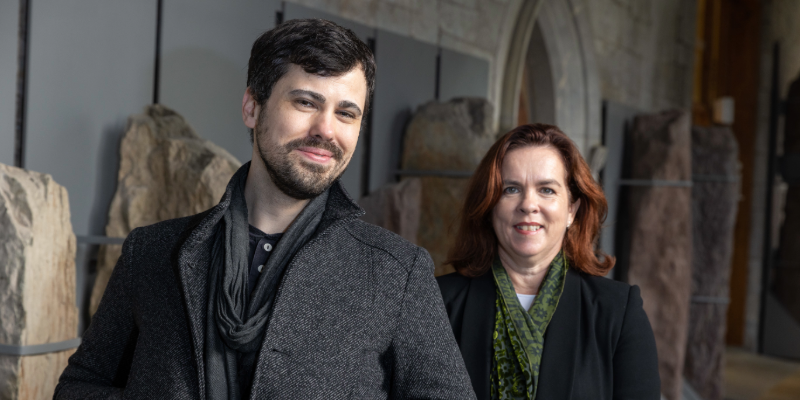In This Section
UCC expert to advise on national AI policies

- Dr James O'Sullivan will work with the HEA to develop new national policies on the use of artificial intelligence (AI) in teaching and learning.
- Dr O'Sullivan is a leading expert in digital humanities and digital literary studies.
- UCC is widely recognised for innovative study at the forefront of the field of digital humanities, exploring how new technologies impact our lives.
Dr James O'Sullivan, Senior Lecturer in Digital Humanities at University College Cork, will take a leading a role in the development of new national policies on the use of artificial intelligence (AI) in teaching and learning.
From September, Dr O’Sullivan will be seconded to Ireland's Higher Education Authority (HEA) where he will work with the National Forum for the Enhancement of Teaching and Learning in Higher Education to develop a robust set of policies and guidelines for the use of artificial intelligence in higher education.
A pressing need for national guidance on AI
Dr O’Sullivan said: "The HEA plays an essential role in the strategic development of our higher education and research system, so I'm looking forward to playing a small part in advancing its mission in the context of artificial intelligence. With the emergence of generative AI, particularly ChatGPT, of course, there is a pressing need for some national guidance on best practices.”
“Any system that can create new content through learning patterns from existing data, specifically, data which is hidden from us as users, presents major pedagogical, and frankly, moral dilemmas. Certainly, the time has come for institutions across Ireland to engage in a comprehensive national conversation on and offer a robust response to generative AI."
Congratulating Dr O’Sullivan, Dr Orla Murphy, Head of the School of English and Digital Humanities, said: “Dr James O’Sullivan brings a wealth of experience to the HEA where he will play an integral role in developing artificial intelligence policy in higher education. This work is essential as universities are committed to embracing new technologies that can enhance the quality of education, student experience and potentially revolutionise the way in which we learn, research and teach.”
The HEA is currently appointing secondees with expertise in a range of strategically important areas in addition to artificial intelligence, including sustainable development, professional recognition in teaching and learning in higher education.
Studying Digital Humanities at UCC
Digital Humanities at UCC provides opportunities for students to explore how computer and media technologies can be applied to research and practice in the arts and humanities. Undergraduate and postgraduate students and scholars investigate how digital technologies can be applied in the exploration and betterment of culture and society.
Dr Orla Murphy said: “Our graduates have the tools and expertise needed to join a world of work that is increasingly shaped by artificial intelligence and digitisation. They are creative coders and developers as well as excellent communicators, writers and critical thinkers who work across a range of industries including tech, education and gaming.”
Learn more about programmes here
College of Arts, Celtic Studies & Social Sciences
Coláiste na nEalaíon, an Léinn Cheiltigh agus na nEolaíochtaí Sóisialta
Contact us
College Office, Room G31 ,Ground Floor, Block B, O'Rahilly Building, UCC
